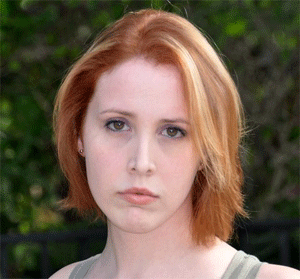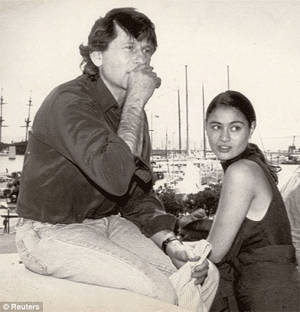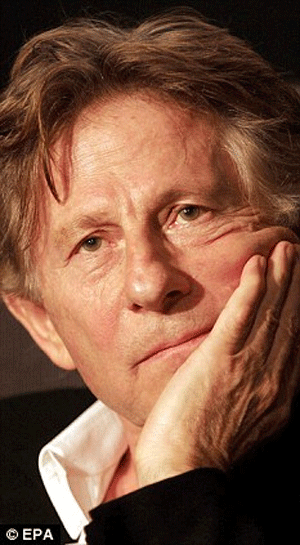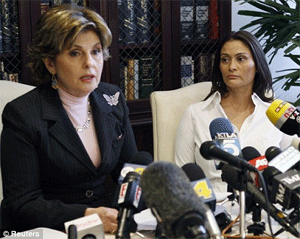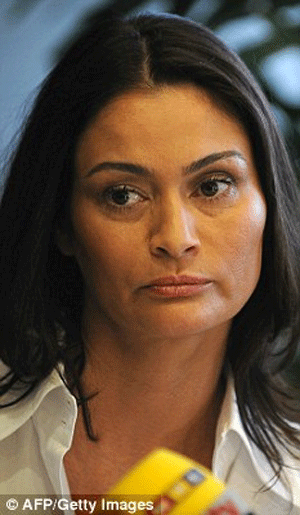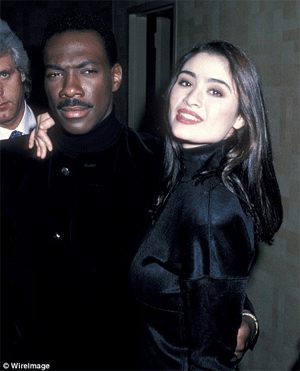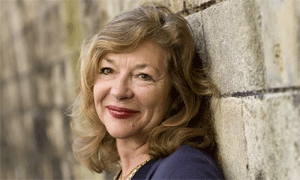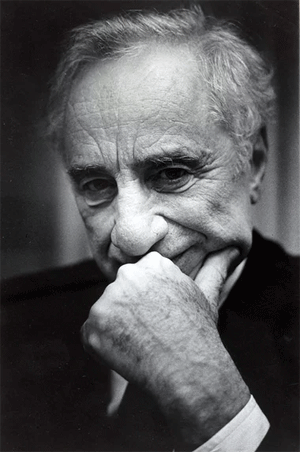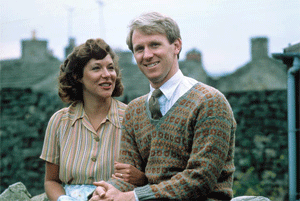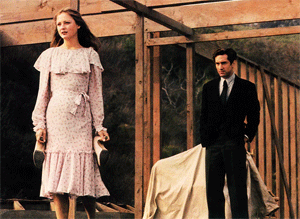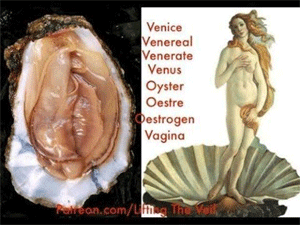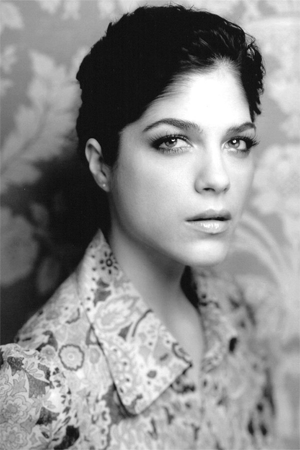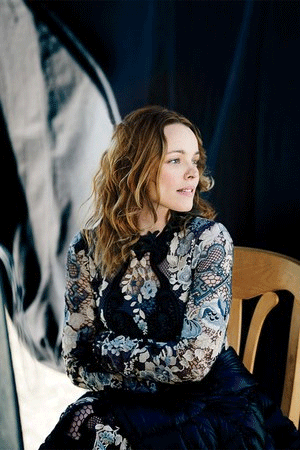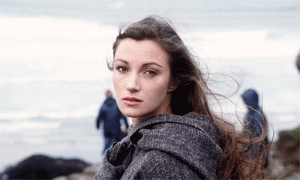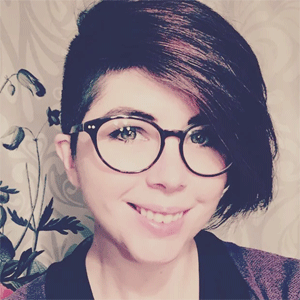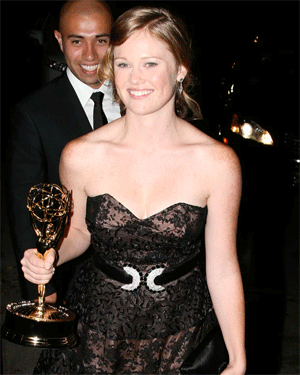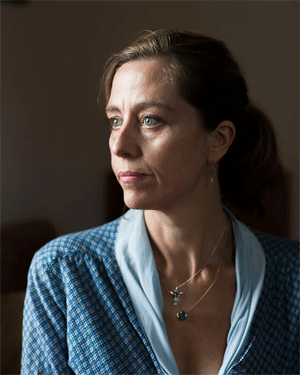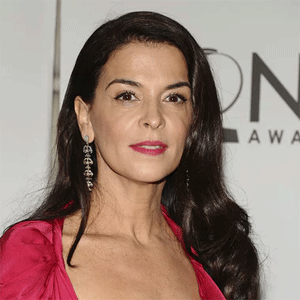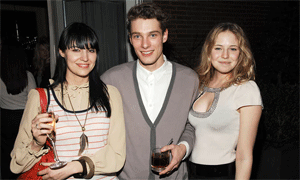by Jayme Deerwester
USA TODAY
8:24 p.m. ET Feb. 1, 2014 | Updated 8:47 a.m. ET Feb. 2, 2014
NOTICE: THIS WORK MAY BE PROTECTED BY COPYRIGHT
YOU ARE REQUIRED TO READ THE COPYRIGHT NOTICE AT THIS LINK BEFORE YOU READ THE FOLLOWING WORK, THAT IS AVAILABLE SOLELY FOR PRIVATE STUDY, SCHOLARSHIP OR RESEARCH PURSUANT TO 17 U.S.C. SECTION 107 AND 108. IN THE EVENT THAT THE LIBRARY DETERMINES THAT UNLAWFUL COPYING OF THIS WORK HAS OCCURRED, THE LIBRARY HAS THE RIGHT TO BLOCK THE I.P. ADDRESS AT WHICH THE UNLAWFUL COPYING APPEARED TO HAVE OCCURRED. THANK YOU FOR RESPECTING THE RIGHTS OF COPYRIGHT OWNERS.
Adopted daughter of Woody Allen and Mia Farrow pens an open letter claiming she was molested by the director.
Dylan Farrow, the adopted daughter of actress Mia Farrow and her then-partner, filmmaker Woody Allen, has written an open letter published by the New York Times website detailing a 1992 incident in which she says Allen molested her.
Though the case made headlines back in 1993 and her mother and brother Ronan have discussed the case before, this is the first time Dylan has spoken publicly on the subject.
Dylan, now 28, was adopted by Farrow and Allen in 1987 when she was 2. Five years later, she writes that Allen led her by the hand to a room in their house where "he told me to lie on my stomach and play with my brother's electric train set. Then he sexually assaulted me."
She goes on to say that "he talked to me while he did it, whispering that I was a good girl, that this was our secret, promising that we'd go to Paris and I'd be a star in his movies."
What’s your favorite Woody Allen movie? Before you answer, you should know: when I was seven years old, Woody Allen took me by the hand and led me into a dim, closet-like attic on the second floor of our house. He told me to lay on my stomach and play with my brother’s electric train set. Then he sexually assaulted me. He talked to me while he did it, whispering that I was a good girl, that this was our secret, promising that we’d go to Paris and I’d be a star in his movies. I remember staring at that toy train, focusing on it as it traveled in its circle around the attic. To this day, I find it difficult to look at toy trains.
For as long as I could remember, my father had been doing things to me that I didn’t like. I didn’t like how often he would take me away from my mom, siblings and friends to be alone with him. I didn’t like it when he would stick his thumb in my mouth. I didn’t like it when I had to get in bed with him under the sheets when he was in his underwear. I didn’t like it when he would place his head in my naked lap and breathe in and breathe out. I would hide under beds or lock myself in the bathroom to avoid these encounters, but he always found me. These things happened so often, so routinely, so skillfully hidden from a mother that would have protected me had she known, that I thought it was normal. I thought this was how fathers doted on their daughters. But what he did to me in the attic felt different. I couldn’t keep the secret anymore.
When I asked my mother if her dad did to her what Woody Allen did to me, I honestly did not know the answer. I also didn’t know the firestorm it would trigger. I didn’t know that my father would use his sexual relationship with my sister to cover up the abuse he inflicted on me. I didn’t know that he would accuse my mother of planting the abuse in my head and call her a liar for defending me. I didn’t know that I would be made to recount my story over and over again, to doctor after doctor, pushed to see if I’d admit I was lying as part of a legal battle I couldn’t possibly understand. At one point, my mother sat me down and told me that I wouldn’t be in trouble if I was lying – that I could take it all back. I couldn’t. It was all true. But sexual abuse claims against the powerful stall more easily. There were experts willing to attack my credibility. There were doctors willing to gaslight an abused child.
After a custody hearing denied my father visitation rights, my mother declined to pursue criminal charges, despite findings of probable cause by the State of Connecticut – due to, in the words of the prosecutor, the fragility of the “child victim.” Woody Allen was never convicted of any crime. That he got away with what he did to me haunted me as I grew up. I was stricken with guilt that I had allowed him to be near other little girls. I was terrified of being touched by men. I developed an eating disorder. I began cutting myself. That torment was made worse by Hollywood. All but a precious few (my heroes) turned a blind eye. Most found it easier to accept the ambiguity, to say, “who can say what happened,” to pretend that nothing was wrong. Actors praised him at awards shows. Networks put him on TV. Critics put him in magazines. Each time I saw my abuser’s face – on a poster, on a t-shirt, on television – I could only hide my panic until I found a place to be alone and fall apart.
Last week, Woody Allen was nominated for his latest Oscar. But this time, I refuse to fall apart. For so long, Woody Allen’s acceptance silenced me. It felt like a personal rebuke, like the awards and accolades were a way to tell me to shut up and go away. But the survivors of sexual abuse who have reached out to me – to support me and to share their fears of coming forward, of being called a liar, of being told their memories aren’t their memories – have given me a reason to not be silent, if only so others know that they don’t have to be silent either.
Today, I consider myself lucky. I am happily married. I have the support of my amazing brothers and sisters. I have a mother who found within herself a well of fortitude that saved us from the chaos a predator brought into our home.
But others are still scared, vulnerable, and struggling for the courage to tell the truth. The message that Hollywood sends matters for them.
What if it had been your child, Cate Blanchett? Louis CK? Alec Baldwin? What if it had been you, Emma Stone? Or you, Scarlett Johansson? You knew me when I was a little girl, Diane Keaton. Have you forgotten me?
Woody Allen is a living testament to the way our society fails the survivors of sexual assault and abuse.
So imagine your seven-year-old daughter being led into an attic by Woody Allen. Imagine she spends a lifetime stricken with nausea at the mention of his name. Imagine a world that celebrates her tormenter.
Are you imagining that? Now, what’s your favorite Woody Allen movie?
-- An Open Letter From Dylan Farrow, by Dylan Farrow
The incident in the attic was not the first time Allen touched her, she said, though she does not give a time frame for how long the alleged abuse went on. She only goes as far as saying that, "for as long as I could remember, my father had been doing things to me that I did not like. ... These things happened so often, so routinely, so skillfully hidden from a mother that would have protected me had she known, that I thought it was normal. I thought this was how fathers doted on their daughters. But what he did to me in the attic felt different. I couldn't keep the secret anymore."
At that point, she told Farrow, who left Allen that same year after the news broke of his relationship with Soon-Yi Previn, the 19-year-old daughter she had adopted with husband Andre Previn. (Allen and Soon-Yi married in 1997 and have two adopted daughters, Bechet and Menzie.)
A custody battle over their adopted children ensued and Allen's attorneys alleged that her mother encouraged her to make up the abuse allegations.
In September 1993, Connecticut state attorney Frank Maco declined to prosecute Allen, saying that while he had probable cause, he did not wish to inflict any further anguish on Dylan by making her testify. Farrow won custody of their adopted children and Allen was denied visitation rights.
"That he got away with what he did to me haunted me as I grew up," Dylan writes. "I was stricken with guilt that I had allowed him to be near other little girls. I was terrified of being touched by men. I developed an eating disorder. I began cutting myself. That torment was made worse by Hollywood. All but a precious few (my heroes) turned a blind eye. Most found it easier to accept the ambiguity, to say, 'who can say what happened,' to pretend that nothing was wrong. ... For so long, Woody Allen's acceptance silenced me. It felt like a personal rebuke, like the awards and accolades were a way to tell me to shut up and go away."
But this award season, Dylan says she felt differently. "This time, I refuse to fall apart. ... Today, I consider myself lucky. I am happily married. I have the support of my amazing brothers and sisters. I have a mother who found within herself a well of fortitude that saved us from the chaos a predator brought into our home."
Why is all of this coming back up now? The Farrow family's feelings toward Allen have been stirred up by the award season attention being paid to him, including the Cecil B. DeMille lifetime achievement award at January's Golden Globes and his Oscar nomination for best original screenplay for Blue Jasmine.
"Imagine your 7-year-old daughter being led into an attic by Woody Allen," she commands the reader. "Imagine she spends a lifetime stricken with nausea at the mention of his name. Imagine a world that celebrates her tormentor."
She drives her point home by calling out the stars of his films. "What if it had been your child, Cate Blanchett? Louis C.K.? Alec Baldwin? What if it had been you, Emma Stone? Or you, Scarlett Johansson? You knew me when I was a little girl, Diane Keaton. Have you forgotten me?"

